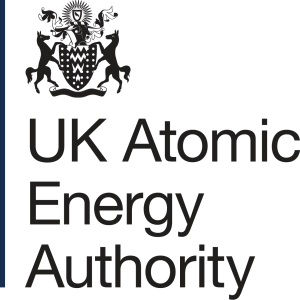Being a trainee patent attorney (“Technical Assistant”) gives me the variety I wanted when looking for a job in science. I find it especially rewarding to be drafting, prosecuting and analysing different patent applications from diverse areas of science each day of the week.
Why did you choose a job in this sector/profession?
As I approached the end of my PhD, it became apparent to me that I did not want a future in lab work. I could foresee a time when I would no longer have the motivation to get into the lab and get my hands dirty. That said, I was still enjoying chemistry and certainly did not want to leave science entirely.
More importantly, I realised during my PhD that variety was key for me. Being able to switch between lab work, computational calculations and writing kept things fresh and exciting. Fortunately, there is plenty of variety in the patent profession, which is definitely one aspect of being a trainee that I especially value. Working on several patent cases across a range of technologies means you never get bogged down in something in the same way you do during a PhD or a lab project. For example, I may be working on an anti-cancer drug one day, an industrial antioxidant on the next, and the next on a process for converting household waste into aviation fuel.
What are your main duties/roles?
As a trainee, I have been involved with all kinds of patent activities right from day one. Primarily, this involves responding to communications from the patent office as part of the process of taking a patent case from application to grant. This gives me a great opportunity to learn about the science behind the patent case I am working on at the time, while familiarising myself with patent law.
I also assist the qualified attorneys with patent drafting, freedom to operate opinions, and all manner of legal and commercial matters – such as assignments, licences and formalities – that arise in the course of managing clients’ patent portfolios.
I have been fortunate enough to be involved in client meetings from the start of my time at TL Brand & Co. This is a particularly valuable experience for a trainee, and also one of the most exciting parts of the job.
Discussing an invention with the inventors means learning about cutting-edge innovation, whilst at the same time trying to organise your thoughts as to how best to draft a patent to protect that invention against would-be copiers. Inventors tend to be interesting and informed people, and holding these kinds of discussion provides a constant reminder as to what attracted me to a career in science in the first place.
What skills are useful in this sector/profession?
It is vital to have good writing and communication skills. Every patent attorney that you speak to will say this (so much so that it’s rather a cliché) but it goes to show just how important it really is. It is crucial to be able to express your ideas in a clear and persuasive way.
Alongside this, having a spark of creativity is also beneficial. Part of your job will be trying to convince the patent examiner why your patent application is different from those already in existence. You will need to come up with interesting and unique arguments which hopefully the examiner will find persuasive; the more creative you are, the more likely you will be to succeed at this.
Another patent cliché is having good attention to detail, but I have also found this to be true. You may need to spot small pieces of information which may be the difference between a patent getting granted and not. You are also crafting legal documents and, as such, they need to be watertight – no mistakes allowed!
Finally, it’s extremely useful to have the ability to understand new information quickly. Working as a patent attorney is entirely different from, for example, a PhD which requires the understanding of a single topic in incredible detail. Instead, you will learn about technologies across a broad spectrum of science, and you will need to have an understanding about each one to be able to talk knowledgably with your client. Don’t let that scare you though, as it is an enjoyable challenge and there is certainly no pressure to revise before meetings!
Do you have any advice for anyone wanting to get into the industry?
Make sure your CV and covering letter are perfect. You are applying for a job with people who write detailed legal documents for a living, and they will spot any mistakes. It is also important to make sure that your covering letter is tailored to the firm you are applying for. Do your research and apply your personal experiences to the job you are going for (for example, are you used to working in a big office, or prefer working in a small close-knit team), and you will not go far wrong.
Whilst applying and interviewing, do not worry about understanding patent law, or how to write a patent – you will learn all that on the job. However, having some familiarity with how a patent looks is certainly beneficial, especially when it comes to answering any interview questions or tests you may get. Perhaps also practise picking up any household object and thinking about how you would describe it if you were writing a patent for it. How does it look? How does it work? Being able come up with answers on the spot will give you a great confidence boost heading into an interview.
Finally, be prepared for exams. There are lots of them on the way to qualifying as a patent attorney, but a good employer will give you plenty of help in preparing for them. It will involve a lot of studying and more stress, but it will be worth it in the end!





